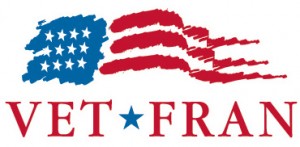 Are you a veteran looking for an opportunity to start your own business? Do you want a proven strategy that will benefit hard working motivated entrepreneurs? Then JDog Junk Removal, LLC is for you! In an effort to decrease the low employment rate for returning military veterans, JDog Junk Removal hires ONLY veterans. Their exciting franchise opportunity is open to Veteran, Active Duty and Reserve Personnel.
Are you a veteran looking for an opportunity to start your own business? Do you want a proven strategy that will benefit hard working motivated entrepreneurs? Then JDog Junk Removal, LLC is for you! In an effort to decrease the low employment rate for returning military veterans, JDog Junk Removal hires ONLY veterans. Their exciting franchise opportunity is open to Veteran, Active Duty and Reserve Personnel.
JDog Junk Removal’s goal is to support the men and women who have served honorably or are currently on Active Duty or Reserve in the armed forces with an opportunity to own your own JDog Junk Removal franchise business. Their business model is offered exclusively to Veterans, Active Duty, Reserves members only and will provide a service needed throughout the United States. JDog Junk Removal is a full-service junk removal franchise based out of Wayne, PA. Their goal is to open territories throughout the United States and build an impeccable reputation through hard work, excellent customer service and a “can do” attitude.

The founder of JDog Junk Removal, a veteran himself, is dedicated to aiding active military and veterans find jobs once they return back the United States and transition back into their everyday life. “As a veteran myself, it’s difficult to see our servicemen and women come home to very few employment options,” says Jerry Flanagan, President and Founder of JDog Junk Removal. “This franchise opportunity is an effort to level the playing field by eliminating the non-veteran competition, while giving our veterans and active military a reasonably-priced way to become a business owner.”
The company was launched by Flanagan in 2011 and started franchising in spring 2012. JDog Junk Removal currently has growth opportunities across the nation. Learn more about JDog and many other franchise opportunities that offer veterans initiative, please visit VeteransFranchise.com. 






